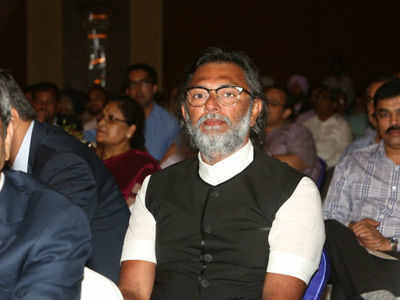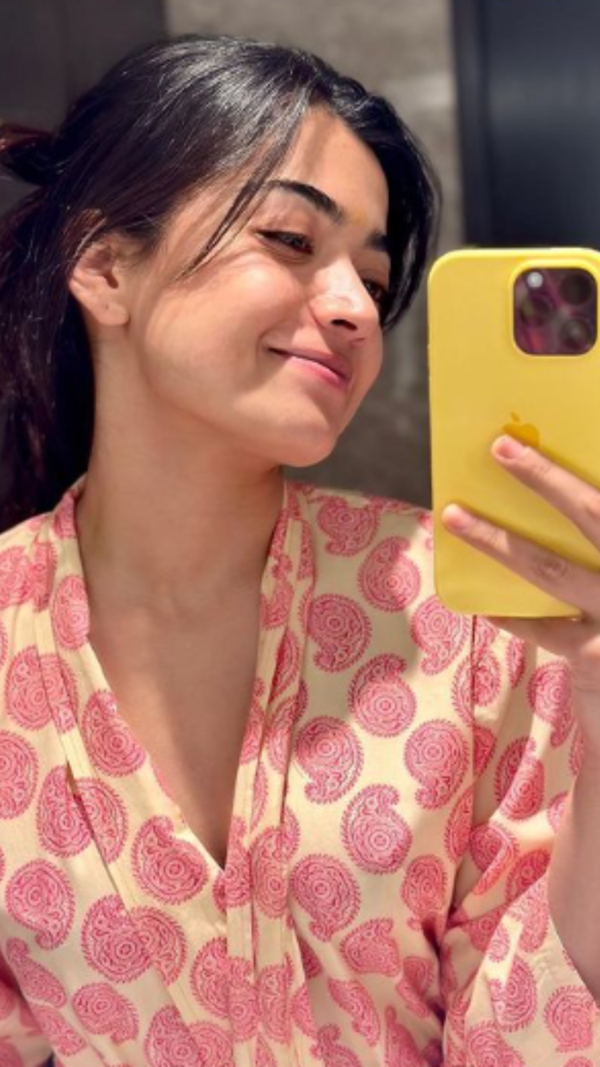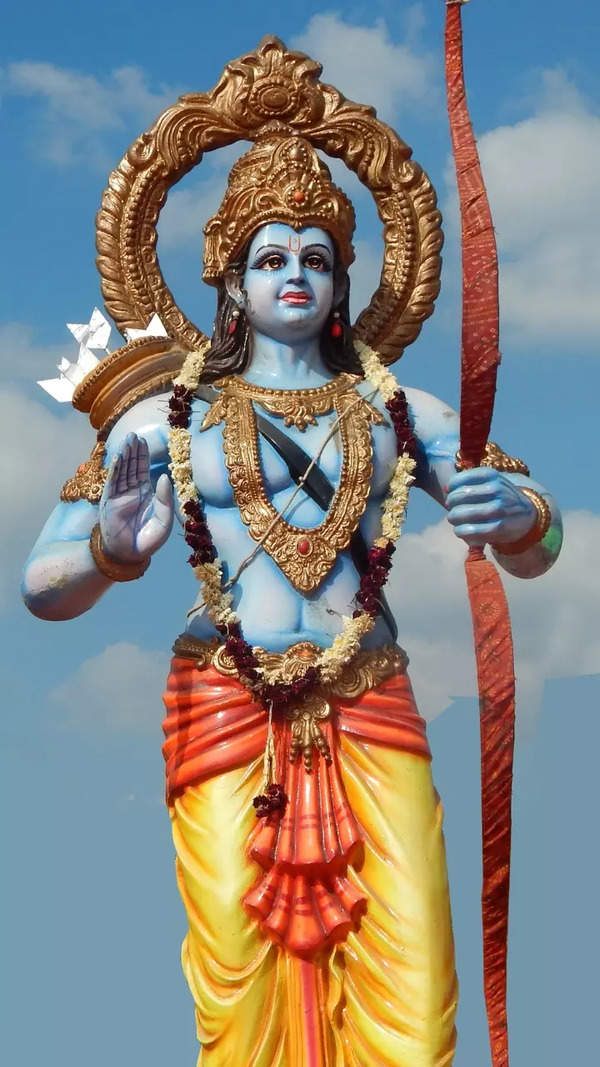- News
- entertainment
- hindi
- bollywood
- I just tell stories and tell them to the best of my ability: Rakeysh Mehra
Trending
This story is from August 16, 2014
I just tell stories and tell them to the best of my ability: Rakeysh Mehra
His films are lauded for conveying strong social messages, however, he says that this is not a conscious effort.

His films are lauded for conveying strong social messages, however, he says that this is not a conscious effort.
He says, “I just try to tell stories and tell them to the best of my abilities. You try to innovate and hope that it reflects in your work. I do not make an attempt to entertain or even to send out a strong message. It’s a job we’re doing and we try to do it to the best of our abilities.We put our best foot forward and leave the rest to fate, I suppose.” (laughs)
He is often introduced as a rebel with a cause. But he says, “These are very big sounding words, and a lot of people have told me, ‘You’re a rebel with a cause.’ I’ve also been called very ‘un-Bollywood’ by the foreign press. These are all semantics. I don’t believe in following a path, or a formula of success. You have to trust your instincts, especially in such a dynamic field which is a blend of art and commerce. So, you just develop as you go along in this field.”
READ: Dhanush's next with Omprakash Mehra?
Recently, Mehra’s wife PS Bharathi, who had worked on Rang De Basanti as its editor, directed a documentary on the making of RDB, called Rubaru. When asked, if he ever thought the film would inspire so many people, he says, “I did what I felt like. When I was writing it and making it, I felt that the youth of the country have to participate. I remembered how we were in college, we wanted to go out and change the world, but we did nothing. We got busy in our jobs, got married and raised children. So, later when I found myself in the director’s chair, I got another opportunity to do what I could not do before. So, you can say that there has been anger and anguish, not with the world or the system, but with myself, so it was my way of making that right.”
Although Bhaag Milkha Bhaag got filmmaker Mehra many accolades, including a National Award, he feels that the AIMA Director of the Year award is a special one. He says, “Normally, you get honoured by your own fraternity and your own kind, but this is a larger award, which is outside the territory of movies and entertainment. It is from the world of management, so, this award is very special to me.”
“Delhi is the land I belong to, and like all storytellers, I tell stories of the land I belong to, and so it is a part of all my films. I can only tell stories about places I am connected to. My next film, Mirziya is based in Rajastahan. I used to visit it a lot during school and college, take buses to different places like the Pushkar fair, Nagore fair, Jaisalmer, and I loved it. So, as a storyteller, I make films in places I share a connection with. Mirziya, which has been written by Gulzarsaab, is very different from my other films, and we’ll start shooting very soon in Rajasthan. I have always admired Gulzarsaab and I am really happy to be working with him on this film.
WATCH: In the Spotlight with Rakeysh Omprakash Mehra
BY FARHANA NUMAN
He says, “I just try to tell stories and tell them to the best of my abilities. You try to innovate and hope that it reflects in your work. I do not make an attempt to entertain or even to send out a strong message. It’s a job we’re doing and we try to do it to the best of our abilities.We put our best foot forward and leave the rest to fate, I suppose.” (laughs)
He is often introduced as a rebel with a cause. But he says, “These are very big sounding words, and a lot of people have told me, ‘You’re a rebel with a cause.’ I’ve also been called very ‘un-Bollywood’ by the foreign press. These are all semantics. I don’t believe in following a path, or a formula of success. You have to trust your instincts, especially in such a dynamic field which is a blend of art and commerce. So, you just develop as you go along in this field.”
READ: Dhanush's next with Omprakash Mehra?
“I told a human story through Bhaag... I didn’t make a film on sports. I narrated a story of lost childhood. I was very moved by the Partition of India, when millions lost their lives on both sides of the border. The ones to suffer the most were the women and the children. Milkha was one of them. This was not a documentary, but an interpretation. Be it in the World War, apartheid or any riots, children always suffer and I wanted to show their suffering. This man didn’t have a roof over his head, no parents, no shoes to wear. And if he could achieve what he did, then he is an inspiration for other Indians,” says Mehra.
Recently, Mehra’s wife PS Bharathi, who had worked on Rang De Basanti as its editor, directed a documentary on the making of RDB, called Rubaru. When asked, if he ever thought the film would inspire so many people, he says, “I did what I felt like. When I was writing it and making it, I felt that the youth of the country have to participate. I remembered how we were in college, we wanted to go out and change the world, but we did nothing. We got busy in our jobs, got married and raised children. So, later when I found myself in the director’s chair, I got another opportunity to do what I could not do before. So, you can say that there has been anger and anguish, not with the world or the system, but with myself, so it was my way of making that right.”
Although Bhaag Milkha Bhaag got filmmaker Mehra many accolades, including a National Award, he feels that the AIMA Director of the Year award is a special one. He says, “Normally, you get honoured by your own fraternity and your own kind, but this is a larger award, which is outside the territory of movies and entertainment. It is from the world of management, so, this award is very special to me.”
“Delhi is the land I belong to, and like all storytellers, I tell stories of the land I belong to, and so it is a part of all my films. I can only tell stories about places I am connected to. My next film, Mirziya is based in Rajastahan. I used to visit it a lot during school and college, take buses to different places like the Pushkar fair, Nagore fair, Jaisalmer, and I loved it. So, as a storyteller, I make films in places I share a connection with. Mirziya, which has been written by Gulzarsaab, is very different from my other films, and we’ll start shooting very soon in Rajasthan. I have always admired Gulzarsaab and I am really happy to be working with him on this film.
WATCH: In the Spotlight with Rakeysh Omprakash Mehra
BY FARHANA NUMAN
End of Article
FOLLOW US ON SOCIAL MEDIA









